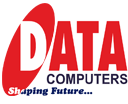C++ PROGRAMING LANGUAGE
C++ is a general-purpose programming language that was developed by Bjarne Stroustrup as an extension of the C language, or “C with Classes”. It has imperative, object-oriented and generic programming features, while also providing facilities for low-level memory manipulation. It is almost always implemented as a compiled language, and many vendors provide C++ compilers, including the Free Software Foundation, Microsoft, Intel, and IBM, so it is available on many platforms.
C++ was designed with a bias toward system programming and embedded, resource-constrained software and large systems, with performance, efficiency and flexibility of use as its design highlights. C++ has also been found useful in many other contexts, with key strengths being software infrastructure and resource-constrained applications, including desktop applications, servers (e.g. e-commerce, Web search or SQL servers), and performance-critical applications (e.g. telephone switches or space probes).
C++ creates many job opportunities. C++ programmers are one of the most in demand professionals in IT industry, with knowledge of C++ you can find job as an associate software engineer, software developer, or system engineer.
Engineering, IT, MCA graduates, PGDBA/MBA graduates (IT specialisation), Software engineers, system analysts, business professionals seeking to upgrade themselves can join this course. Professionals with good knowledge of C++ can earn upto 3-10 lakhs per year depending on their experience.
After completing this course you will be able to
- Understand Boundaries of C++
- Write OOP Programs
- Understand OOP Concept such as Polymorphism, Encapsulation, Inheritance.
- String Manipulation
- Perform Debugging
- Minimize upfront investment using Cloud Computing
Course Content
- Introduction to C++
- Basics of C++
- Hello world program
- Setting up Visual Studio Environment
- Program Lifecycle in C++
- Data Types
- Typedef and Enumerations
- Introduction to OOP
- Encapsulation
- Polymorphism
- Overloading
- Overriding
- Introduction to Class
- Benefits of Class
- Functions (friend Function)
- Public Private and Protected
- Multiple Inheritance
- File Handling
- File IO functions and Operators
- Reading and Writing in a file











